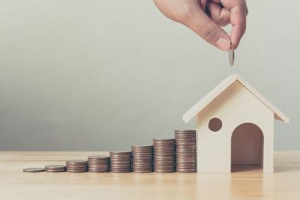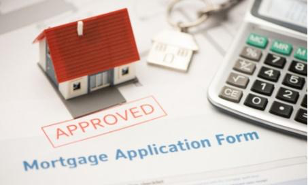
Buying your first house is a great feeling. Making sure you can afford your monthly mortgage payment makes it even better. Before you’re ready to move into that first dream home, understand all the costs that go into a monthly housing payment so there are no surprises after the ink dries.
At Bekins, we’re in the business of moving people. Whether it’s your first house or your third, we want your transition to go as smoothly as possible. That’s why we’re your go-to resource for all things moving. Here’s a simple breakdown of how to calculate your monthly mortgage payment. When you’re ready to calculate your moving costs, give us a call and one of our agents can get you started.
What Costs Go into My Monthly Mortgage Payment?
Your mortgage payment includes several expenses that cover the cost of your home, the interest to the bank, your taxes and your insurance. Here’s the breakdown:
- Principal. Most homebuyers will put a down payment on their house. The principal is the price of your home minus the down payment you pay up front. This is the amount of money you borrow from the bank.
- Interest. This is a percentage that the bank affixes to your principal. It is essentially the fee you pay to borrow money from them.
- Mortgage insurance. If your down payment is less than 20 percent of your home’s price (which is often the case with first time buyers), you are required to have mortgage insurance. This is a way the bank reduces its risk and ensures that you make your payments. Mortgage insurance goes away after you achieve enough equity in your house to cover the difference to 20 percent of the value.
- Property taxes. Most people escrow their property taxes into their mortgage payment. This means that you create a “savings account” that pays your property taxes directly to the city for you. You can find your property tax amount in the for-sale listing for your home or on your city’s webpage. To calculate the monthly cost of your property taxes, divide the annual assessed tax fee by 12 months. Be aware that property taxes fluctuate and will inevitably go up and increase your mortgage payment over time.
- Home insurance. All homeowners are required by law to have their home insured. The type of policy you have and which provider you use is up to you. Your lender will ask you to provide them with an insurance company to set up payments. You may want to get quotes from several insurance companies before choosing.
How to Calculate Interest Payment on a Mortgage

The interest rate on your mortgage greatly affects your monthly payment. The higher the interest rate, the higher your payment will be. Most mortgages use a “fixed rate” in which your interest rate never changes. Variable rate mortgages fluctuate with the economy and could result in higher payments.
Locking in a low interest rate can be tricky for first-time buyers. The amount of your down payment, your credit score and your debt-to-income ratio all affect the rate you qualify for. Going into home buying with healthy finances will serve you well.
Once your lender approves you, they’ll quote you an interest rate. You can calculate your monthly interest payment by dividing this number by 12. For example: if your interest rate is 4 percent, your monthly interest rate will be .003333 (this number is multiplied by your principal, then added to it).
How to Calculate Your Monthly Mortgage Payment
To estimate your house payment, add together the monthly principal, interest, insurance and escrowed taxes. This is not as simple as it sounds because of changing variables. As time goes by you pay less in interest and more towards the principle. The formula is:
M = P [ I(1 + I)^N ] / [ (1 + I)^N – 1]
- M: Monthly payment
- P: Principal
- I: Interest rate (monthly)
- N: Number of payments. This will vary depending on if you have a 15 or 30-year mortgage.
You can create a spreadsheet and plug the numbers in yourself but there are plenty of online mortgage calculators to make the job easier. Your lender can walk you through all the expenses and make sure you’re comfortable with the end payment.
How to Pay Off Your Mortgage Faster
Most mortgages allow you to make extra payments. Check with your lender before your closing to be sure this is an option.
Even paying a small extra amount towards your mortgage every month can save you a lot of money in the long run. As little as $100 per month could shave six years off your mortgage. That translates into big savings on interest. For example: If you had a $200,000 mortgage at 4.5 percent and paid an extra $1,000 each year, you would save yourself $28,500 in interest at the end of the loan.
Two other ways to pay off your mortgage faster include:
- Refinance to shorter term. If you can afford to go from a 30-year mortgage to a 15- or 10-year, you can save significantly and own sooner. Rates are often lower on shorter terms.
- Recast your mortgage. Recasting means you pay a lump sum on your mortgage and have your payment schedule adjusted accordingly. Not all mortgages allow this, but the fees are lower than with refinancing. Recasting is similar to making extra payments; the difference is subtle. Essentially, you’re able to reset your payment schedule, so instead of paying your mortgage off quicker, you pay it off in the same time at a lower monthly payment.
Factor in Your Moving Costs
Finding your first home is an exciting process. We love seeing new homeowners as we walk through the door with that first box of belongings. Make sure that – along with all your closing costs and mortgage – you budget for the moving services you need. When you’ve got that closing date on the calendar, contact Bekins to start moving toward your future in your new home!


